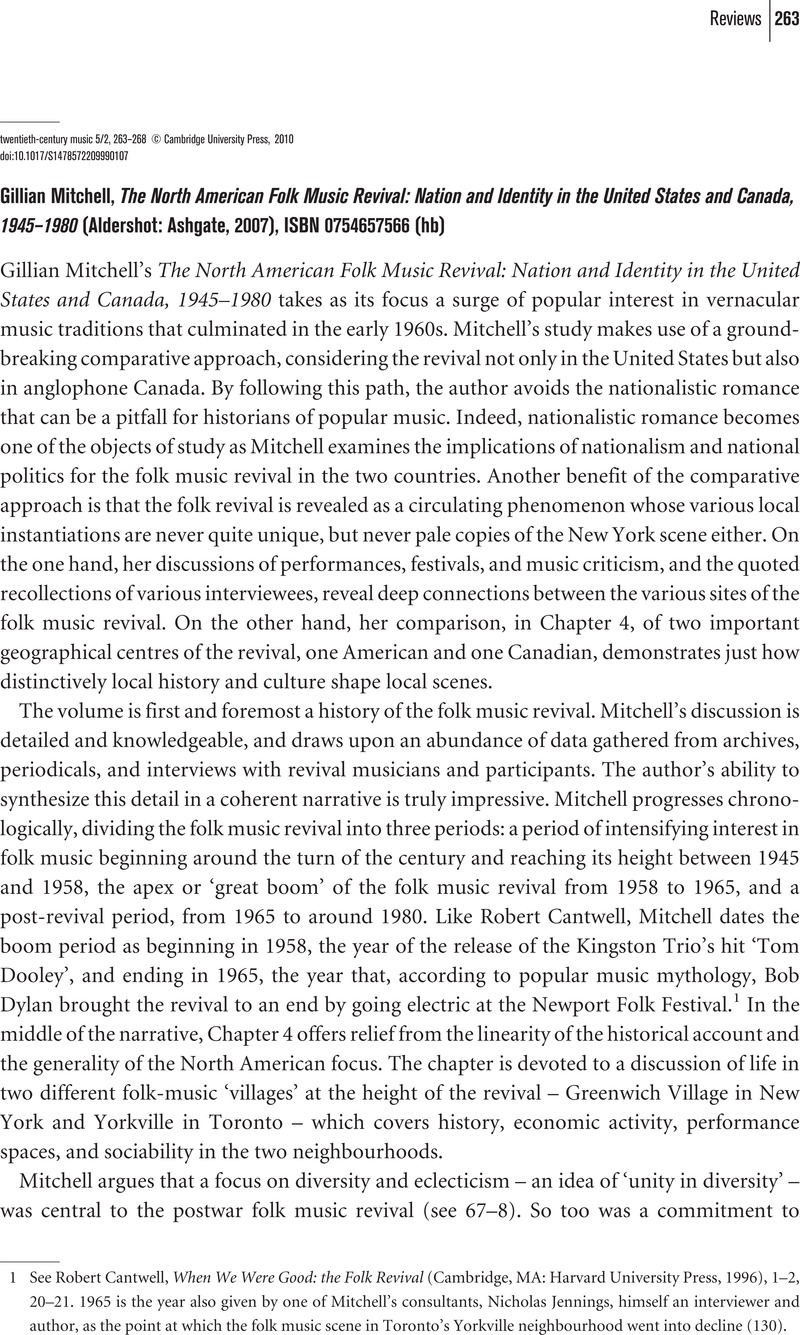No CrossRef data available.
Published online by Cambridge University Press: 05 February 2010

1 See Robert Cantwell, When We Were Good: the Folk Revival (Cambridge, MA: Harvard University Press, 1996), 1–2, 20–21. 1965 is the year also given by one of Mitchell's consultants, Nicholas Jennings, himself an interviewer and author, as the point at which the folk music scene in Toronto's Yorkville neighbourhood went into decline (130).
2 Arjun Appadurai's well known theory of ‘-scapes’ might have been a useful point of reference, for instance. See Appadurai, Modernity at Large: Cultural Dimensions of Globalization (Minneapolis: University of Minnesota Press, 1996), 27–47.
3 Mitchell does however seem to acknowledge that this diversity was sometimes envisaged in national form, even during the early stages of the folk music revival.
4 Mitchell mentions these early on in the book; see pp. 47–8. Such festivals continue to play an important role in contemporary expressions of Canadian nationalism, incorporating musicians and repertories also heard on the folk festival circuit.
5 John Murray Gibbon, Canadian Mosaic: the Making of a Northern Nation (Toronto: McClelland and Stewart, 1938).
6 Cantwell, When We Were Good, 304.
7 Pierre Elliott Trudeau, Conversations With Canadians (Toronto: The University of Toronto Press, 1972), p. 32.
8 Put another way, a unifying and all-encompassing Canadian nationalism asserted itself at the same moment that official multiculturalism emerged. One proof of this paradox is that many French Canadians regarded the 1971 policy of multiculturalism as a betrayal of the hope that the Canadian government would recognize a French Canadian nation as a distinct society within Canada.